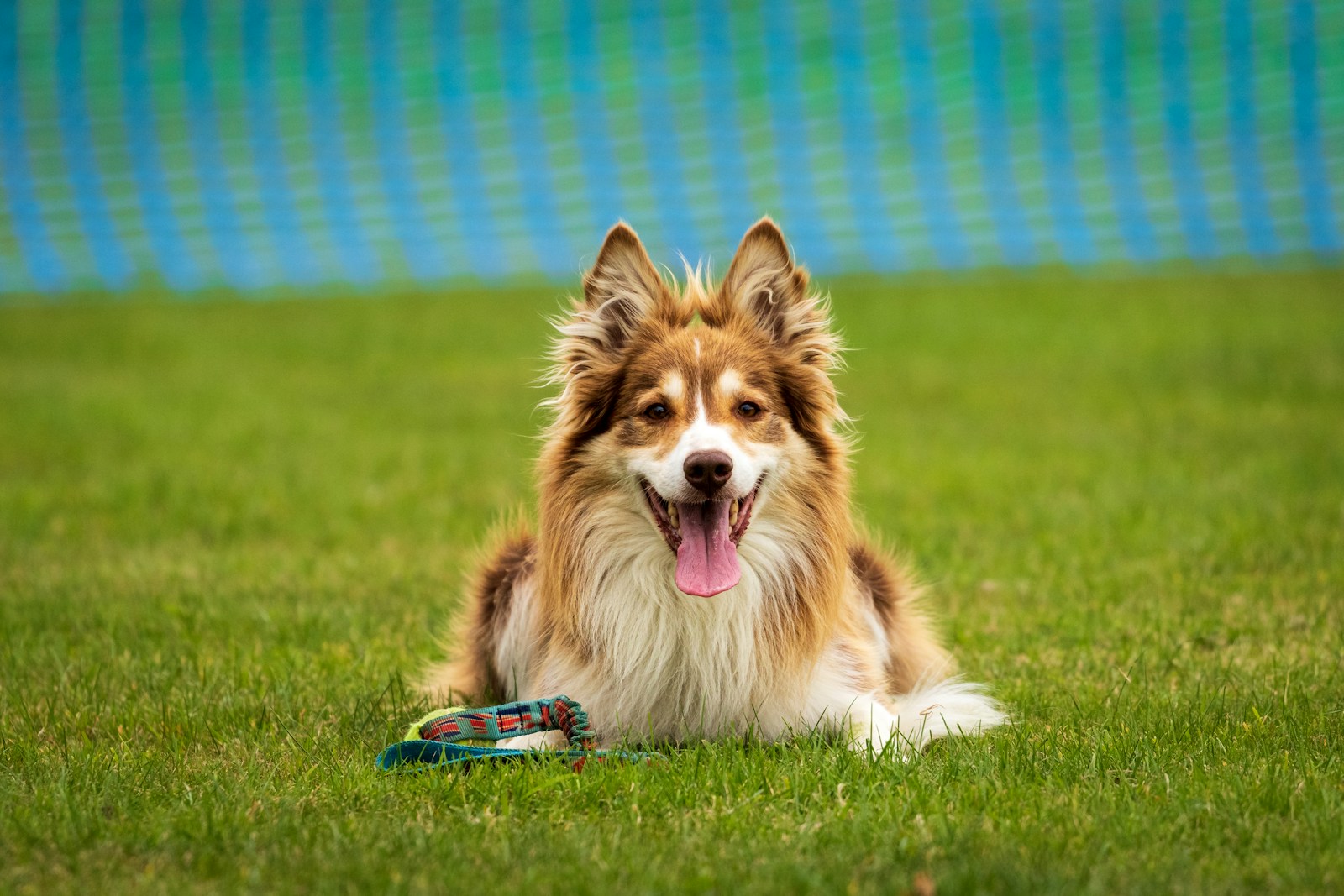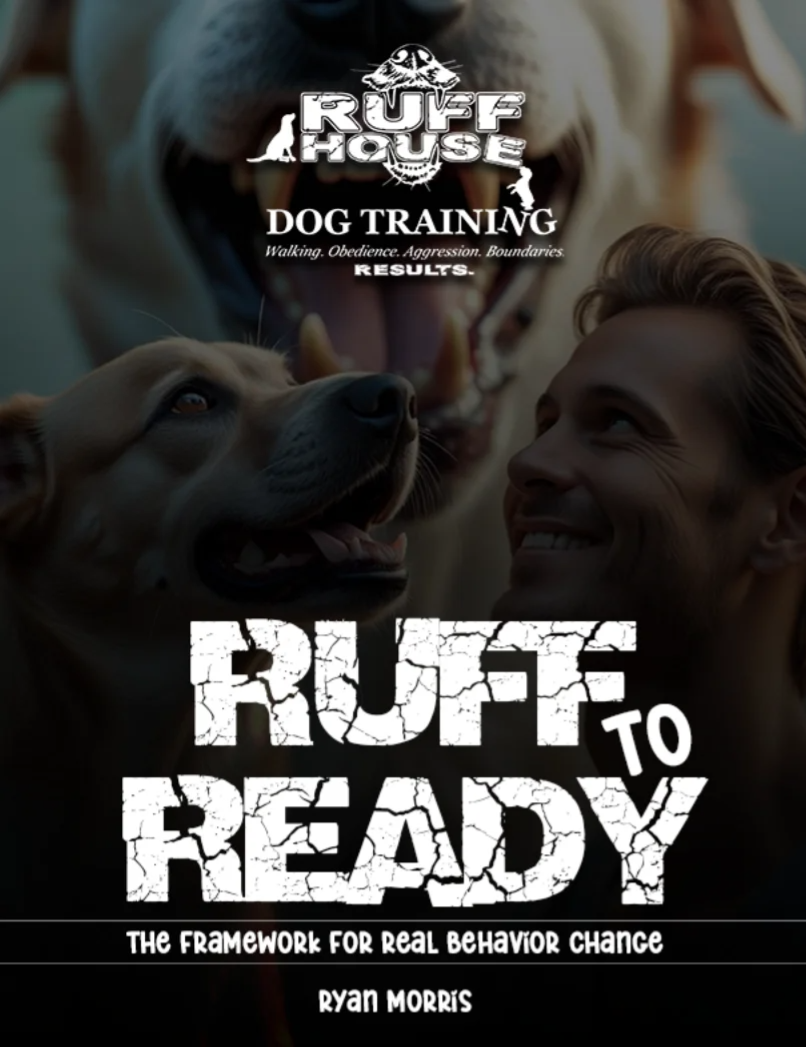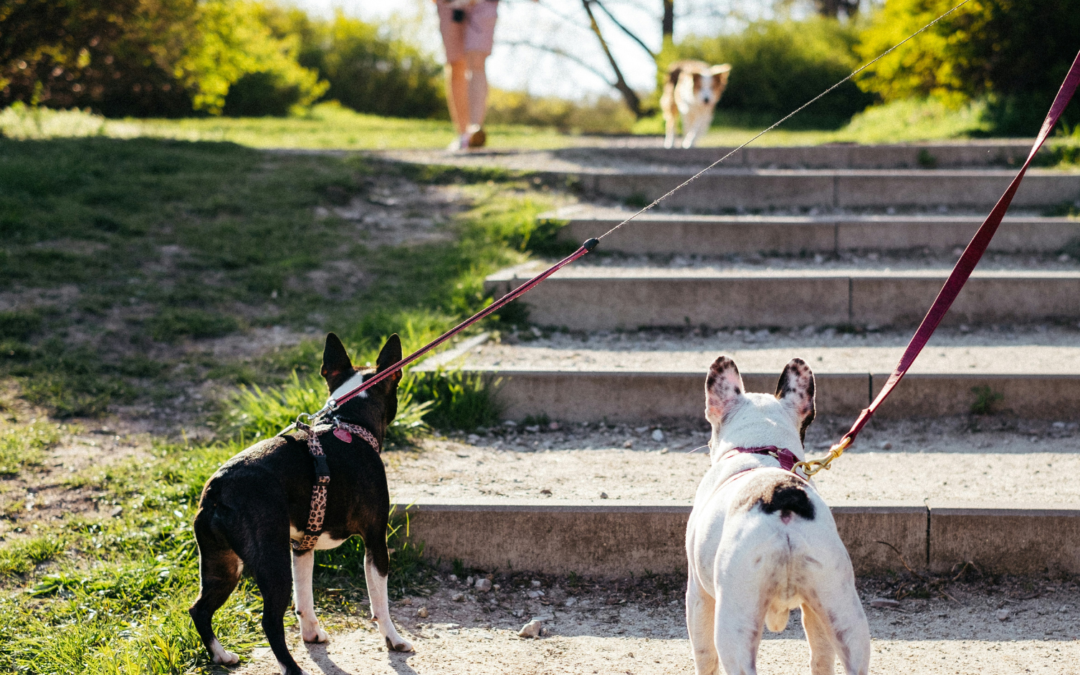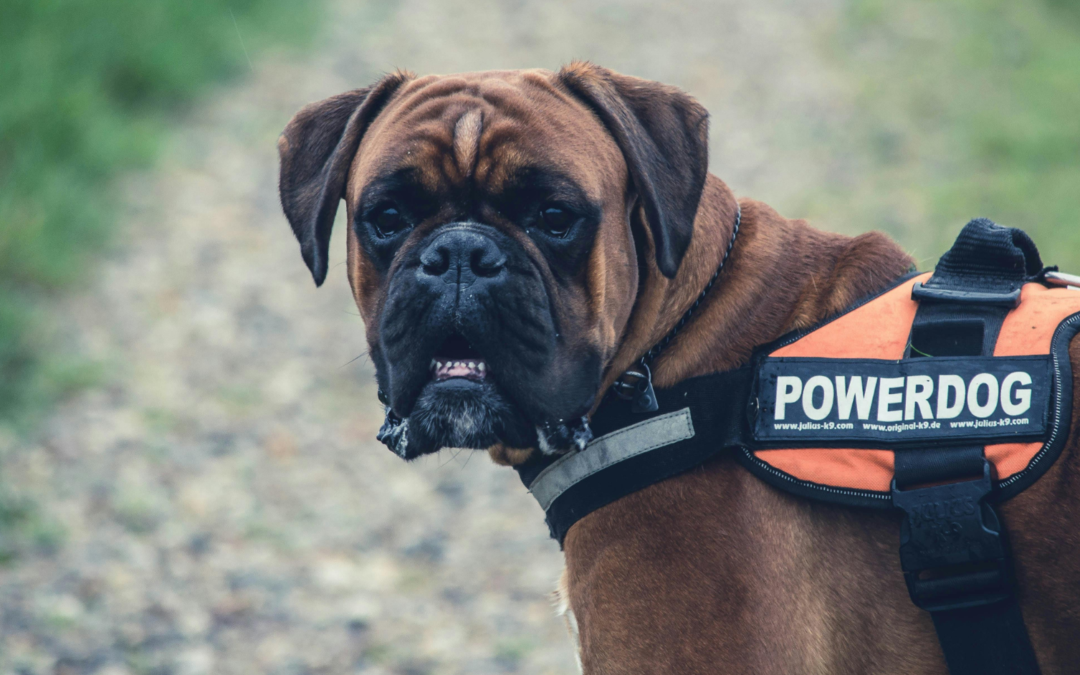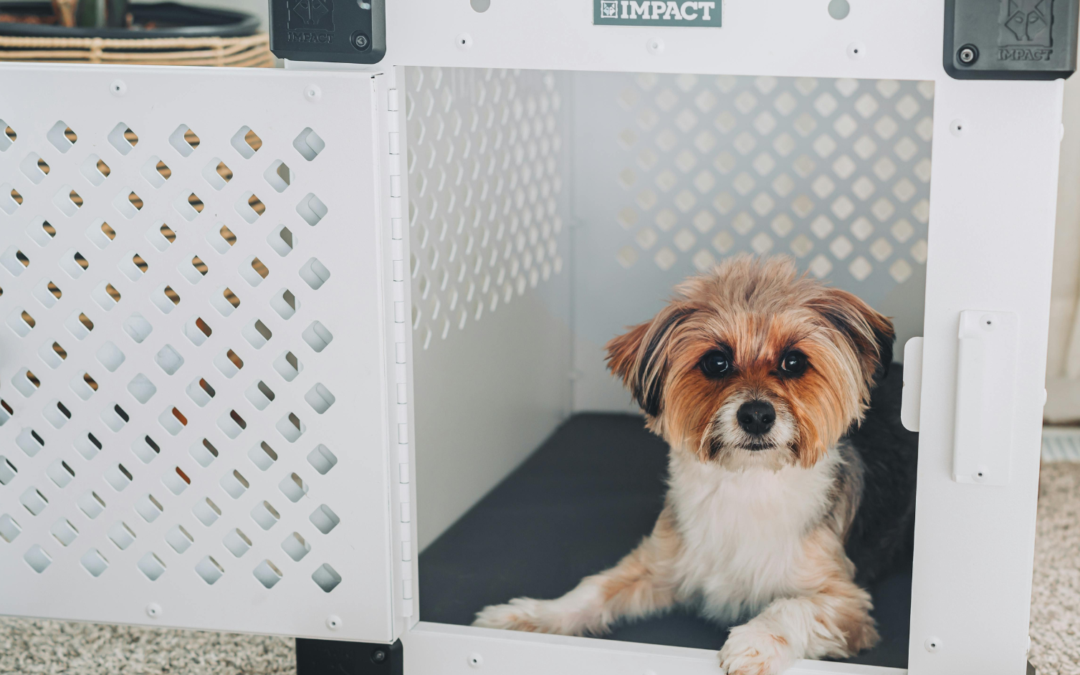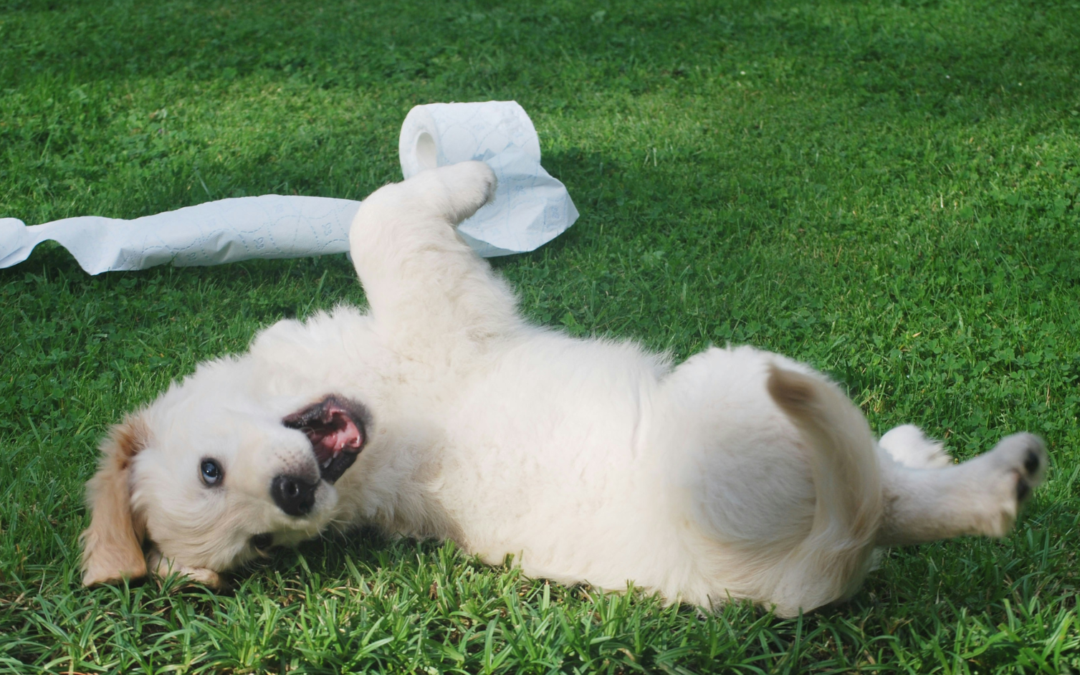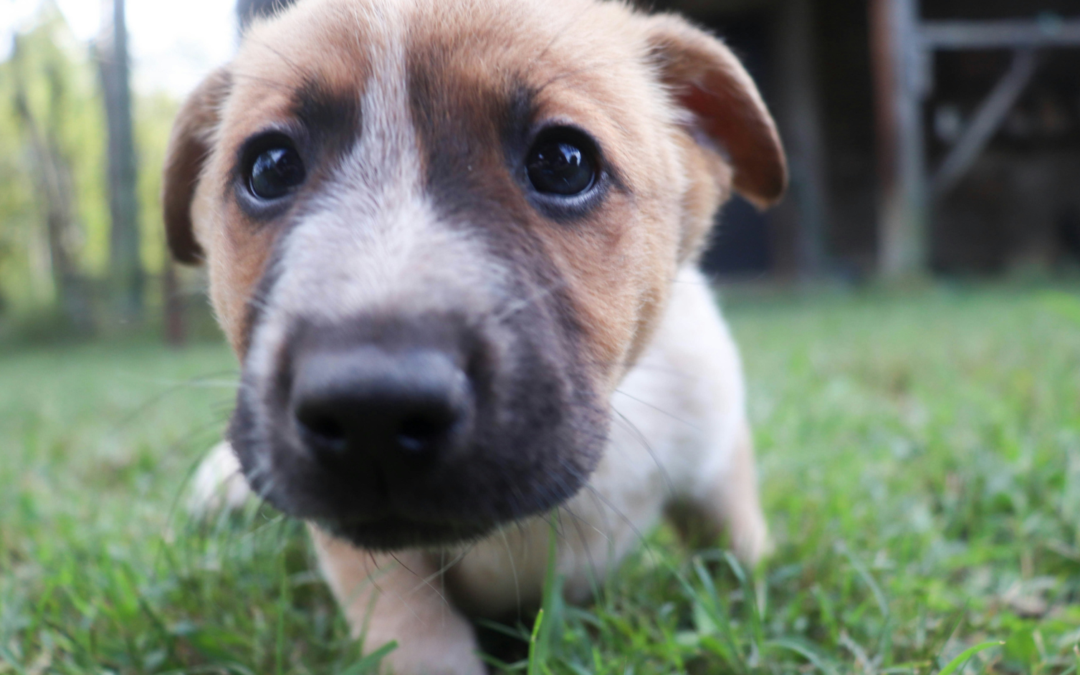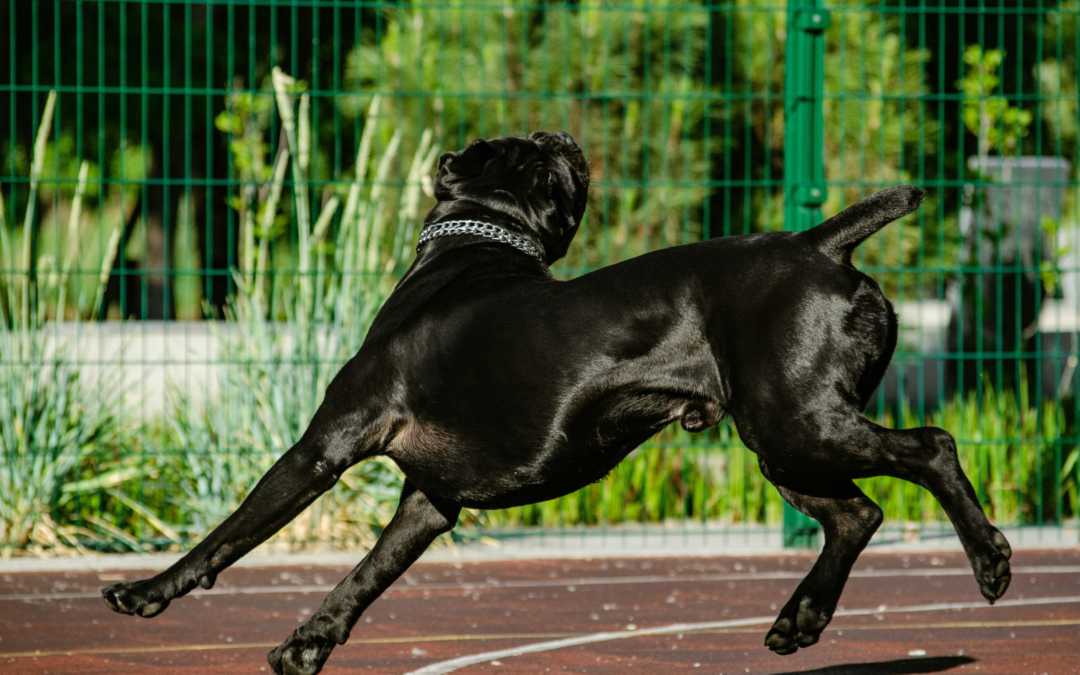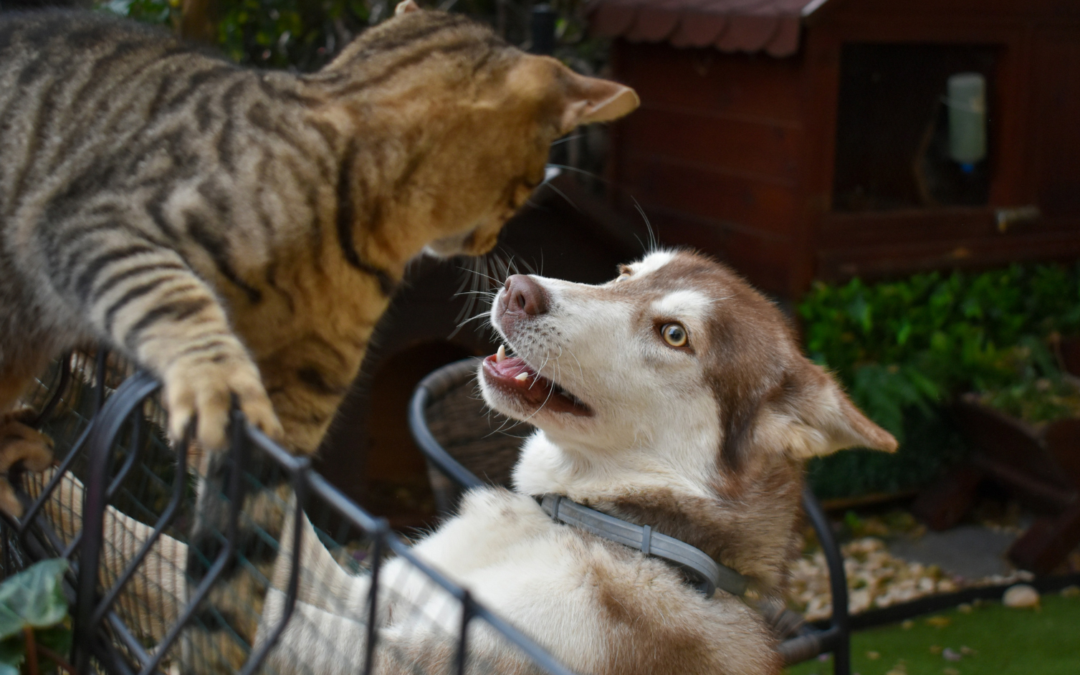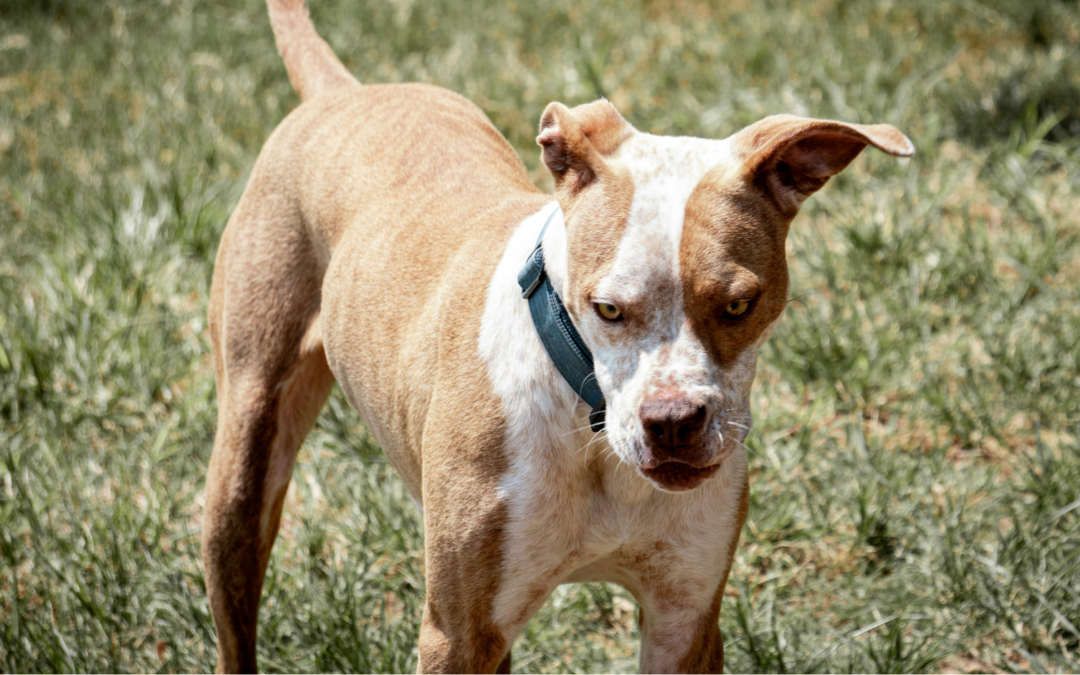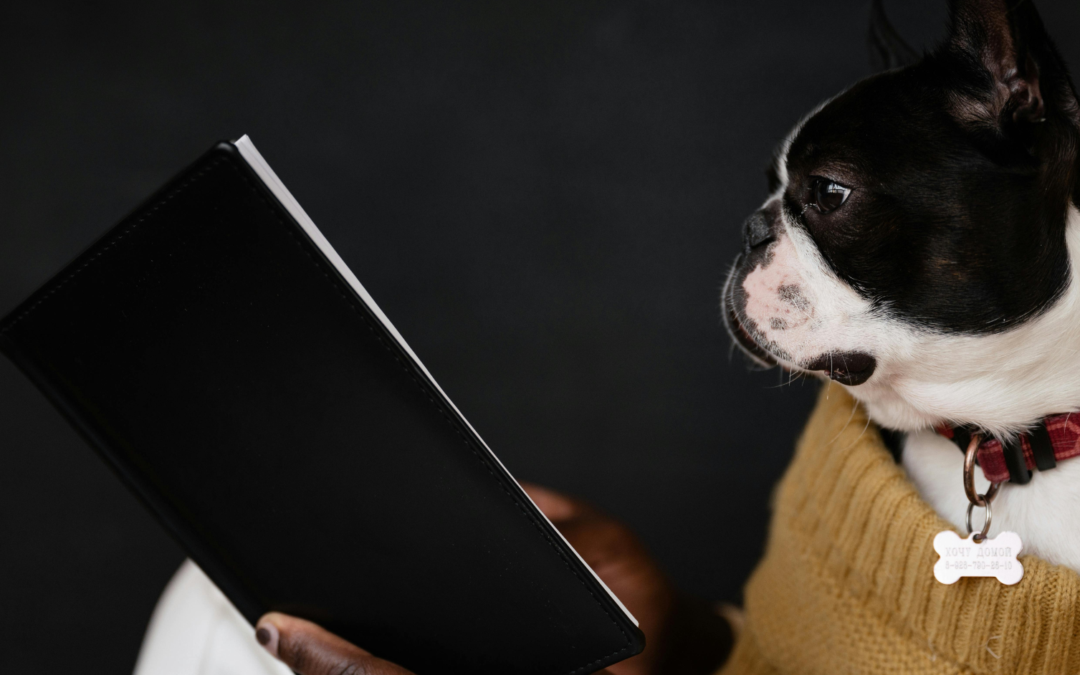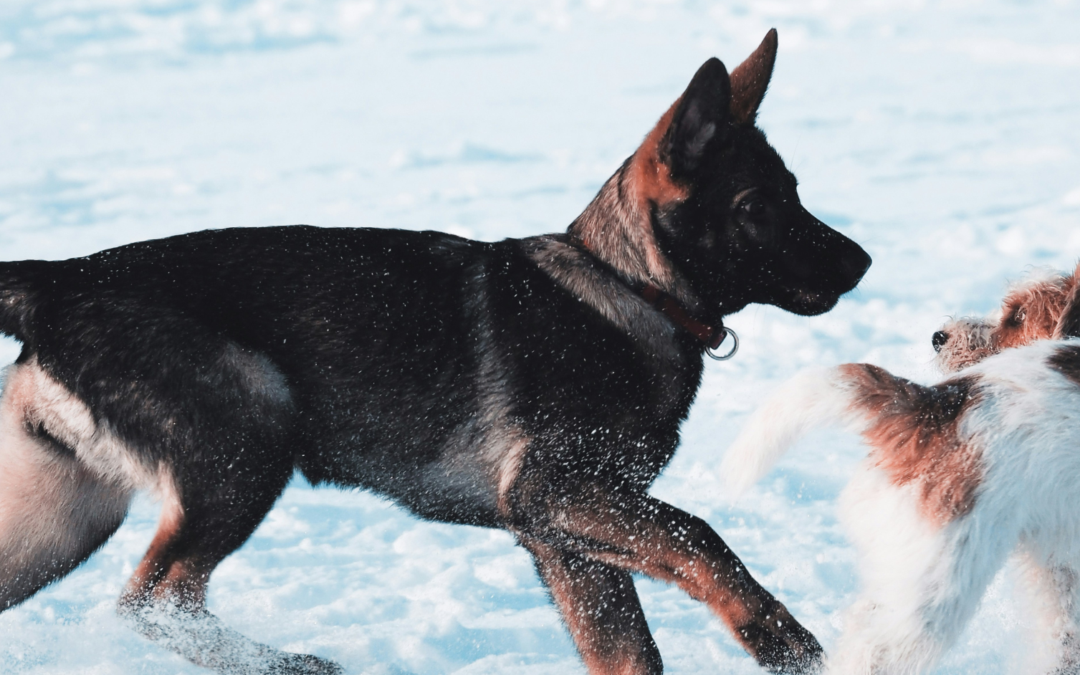As a professional dog trainer in Northern Virginia, I’ve seen it all. The frantic owner is being pulled down the street by a tiny but determined terrier. The family that has to crate their dog every time the doorbell rings. The couple are at their wits’ end because their two dogs can no longer be in the same room. I’ve learned that the right tools, used correctly, can make all the difference between chaos and calm.
The truth is, no single set of dog training tools magically fixes behavior issues. A leash won’t stop pulling on its own, and a treat pouch won’t teach your dog to come when called. It’s all about how you use these tools to communicate with your dog. Effective training isn’t about finding shortcuts; it’s about building a clear, consistent language that both you and your dog understand.
In this post, I’ll share my favorite dog training tools—the ones we use every day at Ruff House Dog Training. I’ll explain what they do, why they work, and how they fit into our real-world training approach. Because sometimes, the problem isn’t your dog; it’s the equipment you’re using.
Ready to turn your dog’s stress into success? Let’s get started.
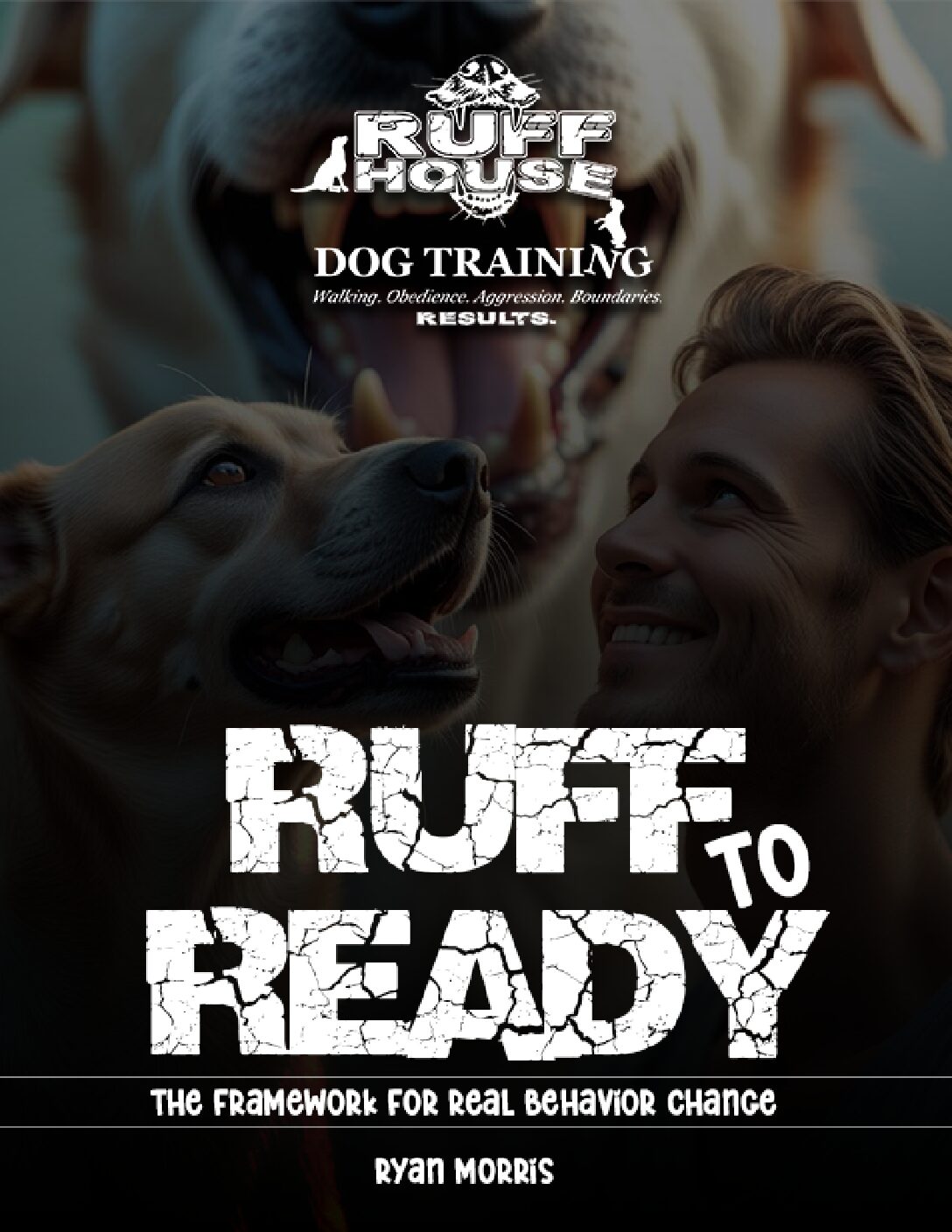
Get the Ruff to Ready framework and start making progress with your dog today.
"*" indicates required fields
What Are Dog Training Tools?
Let’s clear up a common misconception: dog training tools aren’t shortcuts or punishments. They are communication aids. Think of them as the hardware that helps you run the software of your training program. From leashes and collars to clickers and treat pouches, each tool serves a specific purpose in helping you guide your dog, not control them through force.
As professional dog trainers, we choose tools that fit the dog’s size, temperament, and specific training goals. A tool that works wonders for a shy, 10-pound poodle might be completely wrong for a boisterous, 80-pound Labrador. The goal is to find equipment that helps your dog understand what you’re asking of them in a clear and stress-free way.
Mini Tip: The best dog training tool is the one your dog understands and responds to calmly.
Must-Have Dog Training Tools for Every Owner
With the right framework in mind, let’s look at the essential dog training tools that form the foundation of our programs. These are the items I recommend to nearly every client.
1. A Well-Fitted Collar & Durable Leash
This is the most basic but crucial part of your toolkit. A comfortable, properly fitted collar holds your dog’s ID tags and serves as the connection point for your leash. Forget fancy designs—comfort and fit matter most. The leash is your primary line of communication on walks. A sturdy, non-retractable leash (around 6 feet is ideal) gives you control and helps with loose-leash walking and recall training.
2. A Harness (For Puppies)
Harnesses can be excellent tools for puppies. A good front-clip harness can discourage pulling by gently redirecting your dog’s momentum back toward you. This prevents strain on their neck and encourages calmer, more guided walking. However, a poor-fitting harness can restrict movement and cause discomfort, so proper fitting is essential.
3. A Clicker or Marker Word
Timing is everything in dog training. A clicker provides a clear, consistent signal the exact moment your dog performs the desired behavior. This “click” is then immediately followed by a reward. If you don’t want to carry a clicker, you can use a consistent marker word like “Yes!” or “Good!” This method is incredibly effective for teaching new commands during obedience training because it precisely marks what you’re rewarding.
4. A Treat Pouch & High-Value Treats
If you’re fumbling in your pockets for treats, you’re losing precious seconds and your dog’s attention. A treat pouch keeps rewards accessible, allowing you to reinforce good behavior instantly. And when it comes to treats, “high-value” is key. This doesn’t mean junk food; it means something your dog finds irresistible, like small pieces of chicken, cheese, or freeze-dried liver. This motivation is a game-changer for training sessions.
5. Interactive Toys & Mental Stimulation Tools
A bored dog is often a destructive dog. Training goes beyond leash-work. Interactive toys like puzzle feeders, snuffle mats, and Kongs filled with frozen peanut butter provide essential mental stimulation. They encourage problem-solving skills, reduce boredom-based behaviors like chewing, and help your dog learn to settle down independently.
6. A Long Line (The Recall Training Secret Weapon)
A long line is a 15- to 50-foot lightweight leash that allows you to practice off-leash behaviors safely. It’s the perfect tool for recall training (“come”), giving your dog a sense of freedom while ensuring you remain in control. A long line helps build a dog’s confidence and solidifies their response to commands at a distance.
Pro Tip: Training tools don’t replace leadership—they enhance it.
Tools We Don’t Recommend (and Why)
The internet is flooded with trendy gadgets that promise a quick fix, but not all of them are trainer-approved. Some tools can create more problems than they solve by introducing fear, anxiety, or pain into the training process.
Our veteran-owned approach is about building trust, not tension. That’s why we generally advise against:
- Retractable Leashes: These teach dogs to pull (since pulling extends the line) and offer very little control in emergency situations. They are a common cause of accidents for both dogs and humans.
- Poorly-Fitted Harnesses: Harnesses that aren’t fitted correctly can chafe, restrict natural shoulder movement, or even be wriggled out of.
- Shock Collars (Without Professional Guidance): While e-collars can be an effective communication tool in the hands of an experienced professional, they are often used incorrectly by owners. Misuse can lead to fear, anxiety, and aggression. It’s a tool that requires precise timing and a deep understanding of dog behavior, not just a button to press when you’re frustrated.
There’s no judgment here if you’ve used these tools. Our goal is to provide real solutions that foster a positive relationship between you and your dog.
Putting It All Together With Professional Dog Trainers: The Ruff House Way
At Ruff House Dog Training, we offer a variety of programs tailored to meet the unique needs of every dog and owner. Whether you’re looking for an in-depth obedience course or a personalized training plan, we have the expertise and tools to help your furry friend thrive.
90-Minute Miracle Session
Our 90-minute miracle session is designed for those who want a focused, one-on-one opportunity to address their dog’s specific behavior challenges. This intensive session is ideal for targeting issues like leash pulling, recall, or basic commands. With expert guidance, you’ll leave the session equipped with actionable strategies to foster better communication and a stronger bond with your dog.
6-Week Obedience Course
For pet parents looking for comprehensive, long-term results, our 6-week obedience course is the perfect solution. Over the course of six weeks, we focus on teaching foundational skills while addressing your dog’s unique behavioral needs. This program is structured to ensure steady progress with plenty of time to practice, learn, and succeed. It’s a step-by-step investment in your dog’s lifelong obedience and happiness.
E-Book – Ruff to Ready
Can’t attend in-person sessions or want a supplementary resource? Our Ruff to Ready e-book offers a wealth of information to help you train your dog at your own pace. From foundational obedience to solving common behavior issues, this guide is jam-packed with professional tips, tricks, and step-by-step instructions. Perfect for busy dog owners, this resource lets you bring Ruff House training expertise home with you.
Custom Training Programs
Every dog is unique, and their training should be too. That’s why Ruff House offers customized training programs tailored specifically to your dog’s needs. Whether you’re managing a reactive dog, addressing separation anxiety, or preparing for advanced obedience, our trainers will work closely with you to create a plan that delivers results. With a personalized approach, no challenge is too big—or too small.
To learn more about our programs, visit Ruff House Dog Training and begin your training journey today! .

Your Next Step to a Happier Dog
Training isn’t about achieving perfection. It’s about building a partnership based on mutual respect and clear communication. It’s about turning the frustration of a barking, pulling, or reactive dog into the joy of a focused, happy companion. Let’s turn that frustration into focus, one leash at a time.
From chaos to calm—let’s do this. Book your training session today.
